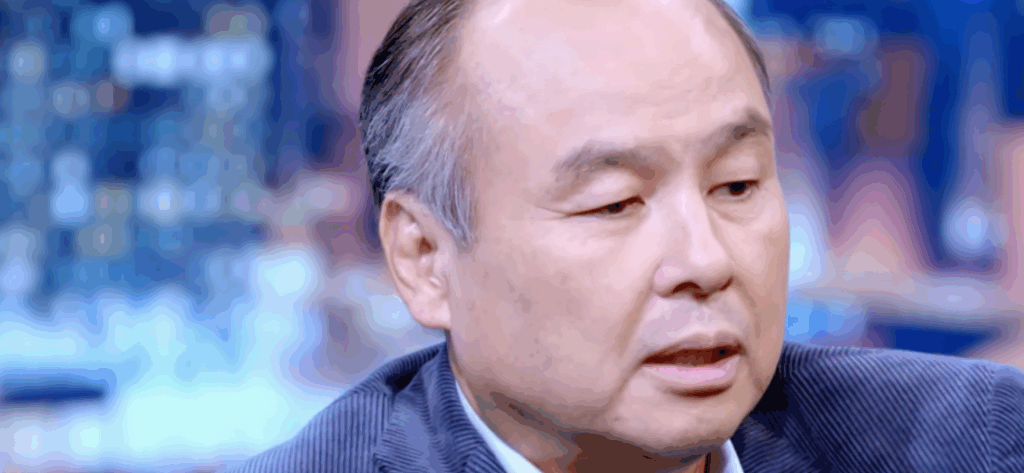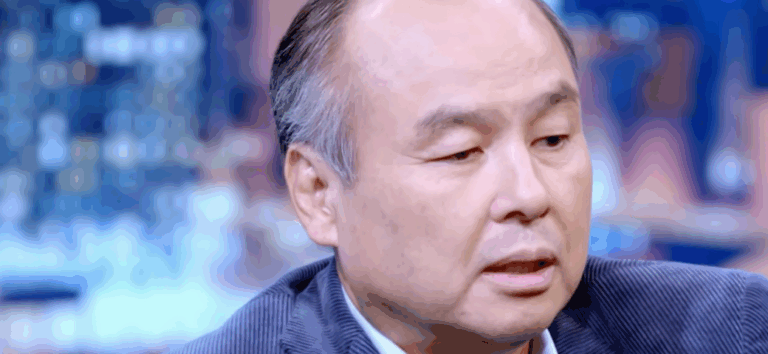Masayoshi Son, who was raised by Korean immigrants in post-war Japan, was accustomed to rejection before he was accustomed to reward. He endured taunts in school and social rejection as he watched his parents operate illicit enterprises to make ends meet. Nevertheless, he clung to the notion that knowledge could open up new worlds. He flew alone to California when he was sixteen and enrolled at Berkeley. That trip was the beginning of a journey that would make him one of the wealthiest men in Japan and the unstoppable force behind SoftBank.
Son showed an extraordinary talent for anticipating the next technological revolution at a very early stage of his career. He established a software distribution company out of a small Tokyo apartment while others discussed the future of software. Eventually, that company changed its name to SoftBank, which is currently among the most active technology investors worldwide. Son established a reputation for seeing the opportunities that others missed by landing exclusive deals with Yahoo! when it was still a baby and placing a $20 million wager on Jack Ma’s Alibaba in 2000.
Masayoshi Son: Bio, Career, and Business Profile
| Full Name | Masayoshi Son |
|---|---|
| Born | August 11, 1957 – Tosu, Saga Prefecture, Japan |
| Nationality | Japanese (of Korean descent – Zainichi Korean) |
| Education | University of California, Berkeley (Economics, CS) |
| Net Worth (2025) | $37.8 Billion USD |
| Role | Founder, Chairman & CEO, SoftBank Group |
| Key Ventures | Vision Fund, Arm Holdings, Alibaba, OpenAI, Stargate |
| Spouse | Masami Ohno (married 1979) |
| Children | Two daughters |
| Major Holdings | SoftBank, Arm, Stargate, former stakes in Sprint, Alibaba |
| Public Source | https://en.wikipedia.org/wiki/Masayoshi_Son |

His next move, the Vision Fund, was financed by the Alibaba windfall, which at its height reached over $100 billion. The fund, which had over $100 billion in capital to support high-growth startups, had support from Saudi Arabia and Abu Dhabi. The fund was a shining star of tech speculation at its height. However, many critics sharpened their knives after WeWork collapsed. Son, however, responded by recalibration rather than retreat. He significantly lowered average investment sizes, shifting the focus from unrestrained overcapitalization to extremely effective portfolio management.
Son repositioned SoftBank as a strong force by implementing pragmatism and strategically cutting fat. He turned with remarkable accuracy, especially during the AI revival. He joined forces with Donald Trump, Larry Ellison of Oracle, and OpenAI to start Stargate, a massive initiative to construct data centers across the US, in early 2024. Arm Holdings and TSMC are major players in chip design and manufacturing, and the $500 billion investment aims to create infrastructure that can support enormous AI models.
Son is trying something very new with Stargate: a vertical ecosystem that includes AI modeling, compute infrastructure, and semiconductor design. This ecosystem is set up to challenge Nvidia’s hegemony. Although Nvidia’s GPUs are essential to AI processing, Son is placing a wager that specially made chips, created by Arm and produced by TSMC, may provide a noticeably quicker and more energy-efficient substitute.
Son has evolved over the last ten years from a risk-taking idealist to a tech leader. Analysts are taking notice of his predictions about the future of AI. SoftBank’s financial and strategic clout is expanding in tandem with OpenAI’s valuation, which is now close to $100 billion. At one point, his prediction that OpenAI might eventually outperform Apple in terms of value seemed unrealistic. It seems remarkably prescient today.
The impulsive approach of Masayoshi Son stands in stark contrast to that of more methodical investors. He once compared business intuition to “smelling the trend,” a strategy that brought him both spectacular victories and humiliating defeats. He was unconcerned, however, even after SoftBank reported quarterly losses of $23 billion in 2022. “I’ll go back to being a cockroach,” he said with his usual flourish, surviving and rebuilding from the shadows. Not only was it funny, but it also demonstrated his strong mentality.
Son has gradually restored SoftBank’s reputation through strategic alliances. Despite being smaller, the second Vision Fund has done noticeably better. It highlighted biotech businesses, robotics companies, and AI startups that are in line with long-term scalability. Many of these investments, particularly those connected to AI infrastructure, are already exhibiting early indications of high return potential.
Arm Holdings has been one especially useful asset. Arm, which Son acquired in 2016, went public again in 2023, and is currently valued at more than $130 billion. Arm’s architecture is proving to be remarkably adaptable as AI chips become crucial to every tech stack, from data centers to smartphones. Son is creating an ecosystem with remarkably obvious vertical integration by owning the blueprint and investing in the chip factories.
Son is still a very private person at home. He owns opulent properties abroad and lives in a Tokyo compound with multiple residences. He doesn’t show off his wealth, though, despite the luxury. He keeps his private life out of the spotlight. People who know him describe him as a man who reads hundreds of pages every day and hardly ever takes a break. For him, being innovative is a responsibility—a goal bigger than himself.
His connection to public debt has been questioned in recent years. Due to internal leveraged positions, Son once owed SoftBank more than $5 billion. It was quickly labeled financial engineering by critics. However, like many of Son’s decisions, the debt was a calculated risk, based on the hope that short-term losses would be offset by future equity gains. Notably, he was correct once more. Following the announcements of OpenAI and Stargate, SoftBank’s stock experienced a significant uptick in 2025.
Masayoshi Son is creating a comeback that few thought was possible by utilizing both strategic foresight and sheer conviction. Son creates while other tech behemoths skirt issues like chip shortages and AI ethics. He is laying the foundation for the future through Stargate, not just providing the funding. His approach is very effective, his timing seems deliberate, and his reach is becoming more and more unrivaled.


